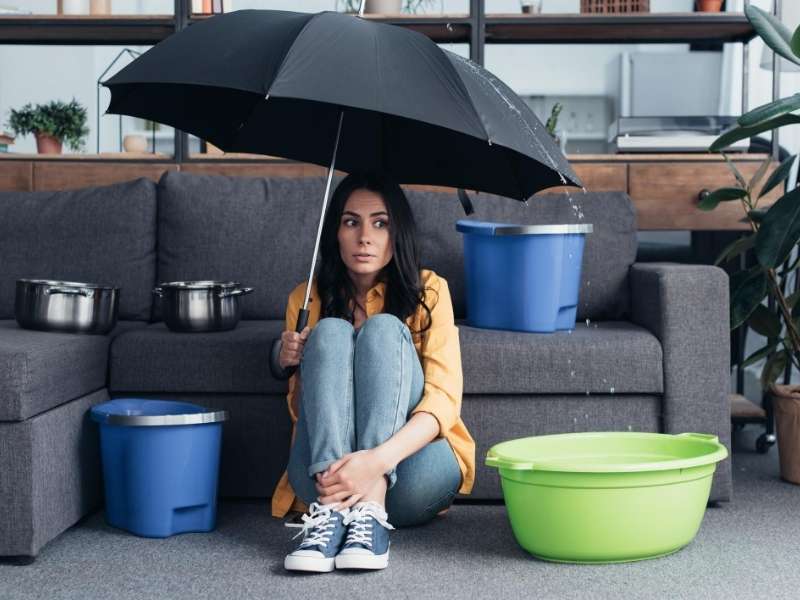According to information from a report from Verisk Analytics shows that one in 50 homeowners filed a water damage claim every year between 2013 and 2017. That means water damage is surprisingly common.
Considering the havoc that it causes on the structural integrity of your home, it makes sense to do everything in your power to prevent it from happening in the first place. Here’s our complete guide to protecting your home from water damage.
Water Damage • An Essential Guide for Homeowners

Disconnect Hoses in Winter
Water left to stand inside hoses can freeze quickly when temperatures start to fall. This freezing process can extend all the way back into your pipes, increasing the chances of them bursting and causing catastrophic damage as a result.
Maintain Gutters Regularly
Your gutters and downspouts are there to ensure a free flow of rainwater from your roof. If they are cracked, broken, or clogged with leaves and other debris, it will take the water a much longer time to run off.
In some cases, the water will not run off at all and can start to form puddles on your roofing tiles. This accumulation can cause weak spots and, eventually, leaks. Therefore, make an effort to clean your gutters at least two – three times per year and make repairs and replacements as needed.
Keep A Look-Out in Your Yard
Pay close attention to where you plant shrubs and trees. If their roots extend down far enough, they can gradually wrap themselves around your pipes, resulting in significant plumbing problems further down the line.
Maintain Home Appliances
Leaking home appliances, such as dishwashers and washing machines, are some of the most common culprits behind water damage inside the home.
Sometimes leaks come from old appliances that have reached the end of their lifespan. However, in other cases, leaks happen because the homeowner has neglected to maintain the appliance. Check your user’s manual for guidelines about how often you should be scheduling tune-ups for your dishwasher, washing machines, etc.
Check Water Pressure Regularly
Extreme water pressure can result in burst pipes and other plumbing mishaps. Buy a water pressure gauge at a hardware store and ensure that you check the pressure regularly, just in case.
Any reading below 70 psi is considered normal. Anything higher than that and you might want to consider investing in a pressure regulator.
Install Water Detection Technology
Nowadays, you can get your hands on little water detection devices that are placed in areas of the home where water leaks are common.
For example, you can install water detection technology near toilets and sump pumps. If the sensor comes into contact with moisture, it notifies you by sounding an alarm so that you can see to the problem without delay.
It Pays to Be Pro-Active…
If, despite your best efforts, you are faced with a water-related home emergency, the key is to act quickly. After all, this type of damage can lead to mold growth and other nasty consequences. That is, unless the water is dried up fast and the damaged components of your home are properly cleaned, repaired, or replaced.
Your best bet is to call on a water damage restoration company that has experience serving a huge community, such as the entire Atlanta metro area. These restoration experts are used to handling many types of homes quickly, as they have many more clients in need of water damage restoration.
Ultimately, it is important to find a damage restoration company that handles all aspects of the restoration process on your behalf. That includes tasks such as the following:
- Carpet replacement
- De-humidification
- Deodorization
- Re-painting
If you have questions or suggestions, please leave them in the comments below. You will also find other fantastic links below to all things design!
Images Courtesy of Canva.
What Is the Best Roofing Material for Homes? 4 Common Options
How Much Value Does a New Roof Add?





